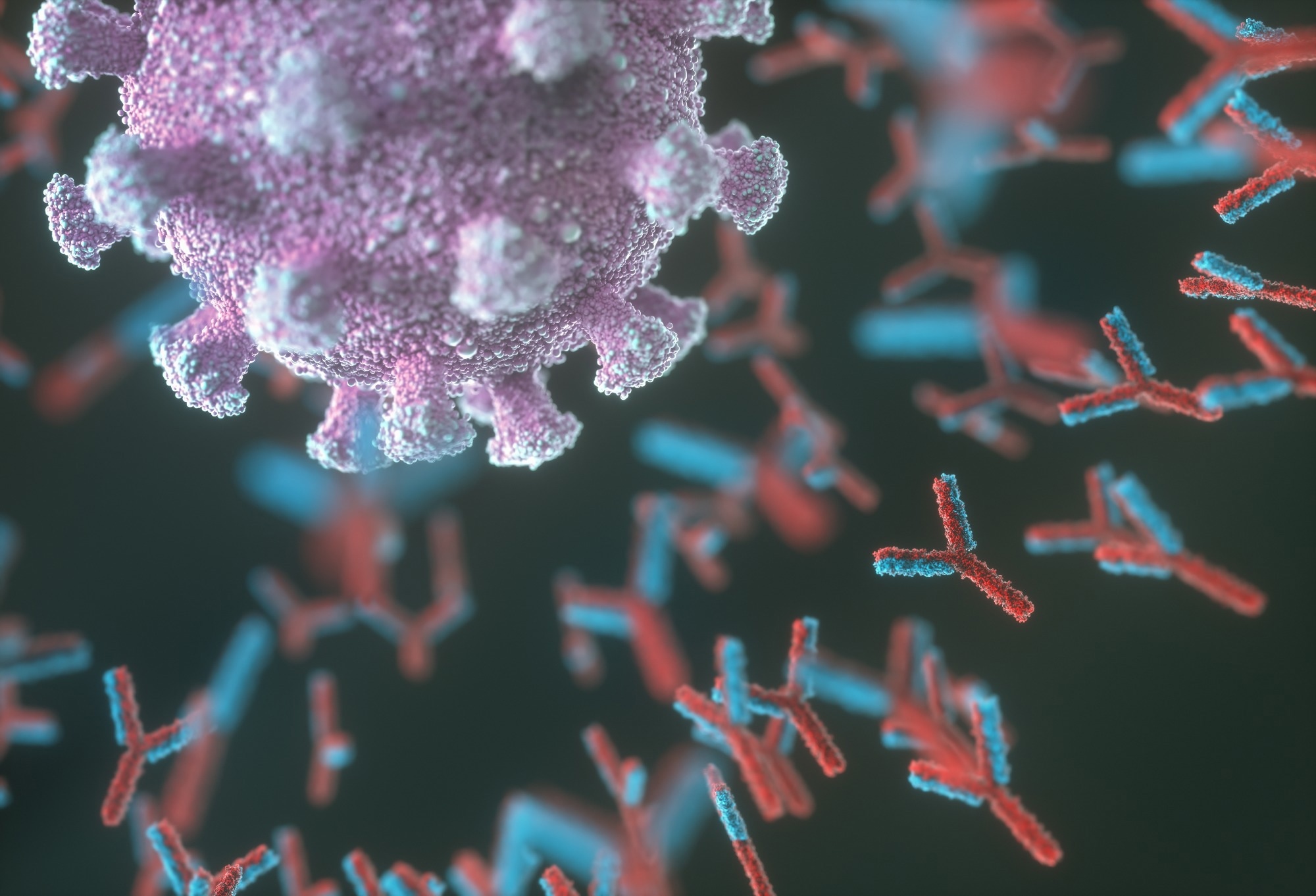In a recent study posted to the medRxiv* preprint server, researchers assessed the immunogenicity and safety of KD-414, an inactivated severe acute respiratory syndrome coronavirus 2 (SARS-CoV-2) vaccine.
 Study: Preliminary report: Safety and immunogenicity of an inactivated SARS-CoV-2 vaccine, KD-414, in healthy adult participants: a non-randomized, open-label phase 2/3 clinical study in Japan. Image Credit: ktsdesign/Shutterstock
Study: Preliminary report: Safety and immunogenicity of an inactivated SARS-CoV-2 vaccine, KD-414, in healthy adult participants: a non-randomized, open-label phase 2/3 clinical study in Japan. Image Credit: ktsdesign/Shutterstock

 *Important notice: medRxiv publishes preliminary scientific reports that are not peer-reviewed and, therefore, should not be regarded as conclusive, guide clinical practice/health-related behavior, or treated as established information.
*Important notice: medRxiv publishes preliminary scientific reports that are not peer-reviewed and, therefore, should not be regarded as conclusive, guide clinical practice/health-related behavior, or treated as established information.
Background
Inactivated, purified, whole-virus SARS-CoV-2 vaccine is a modality proven safe and effective as an infectious disease vaccine and is employed by the KD-414 vaccine. In phase 1/2 studies, safety and immunogenicity for the vaccine were assessed following two intramuscular injections with KD-414 at three different dosages that contained different active ingredients. These doses included product L of 2.5 g/dose, product M of 5 g/dose, and product H of 10 g/dose.
Although it has been demonstrated that neutralizing antibody levels strongly correspond with the preventive impact of the novel SARS-CoV-2 vaccine against the onset, the minimum level of neutralizing antibody titers necessary for prevention has not yet been found. As a result, it is crucial to assess the vaccination schedule using the first three vaccine doses in the primary series that can raise neutralizing antibody titers.
About the study
In the present study, researchers reported the results of the phase 2/3 research performed to determine the immunogenicity and safety of three dosages of KD-414 against SARS-CoV-2.
The team performed a multicenter and uncontrolled study at 12 locations in Japan. Healthy Japanese volunteers at least 18 years old were eligible for the study. Participants who reported a fever, cough, chills, dyspnea, or shortness of breath for a minimum of 24 hours or if they experienced arthralgia, dysgeusia, diarrhea, headache, myalgia, malaise, nausea, runny nose, smell disorder, sore throat, stuffy nose or vomiting for a minimum of 48 hours were instructed to undergo laboratory assessments, including polymerase chain reaction (PCR).
Active ingredients were administered as 10 g/dose of KD-414. For the primary regimen, three vaccines were provided: two intramuscular KD-414 doses spaced 28 days apart and one intramuscular vaccination provided 13 weeks post-second vaccination. The third dose was received by participants who consented to receive the third vaccination. In an electronic journal, each participant kept track of their health state and body temperature from the day following each KD-414 vaccine until day six. A follow-up exam was performed on the subjects 28 days after the third vaccine.
The primary endpoint against the SARS-CoV-2 Wuhan strain was the geometric mean neutralizing antibody titers (GMTs) corresponding to KD-414 28 days after the second and third vaccinations. The rates of neutralizing antibody-seroconversion 28 days following the second and third dose of KD-414 served as the secondary endpoint.
Results
A total of 2500 participants were vaccinated with the first dose of KD-414, while 2474 participants received the second dose 2081 individuals were vaccinated with the third dose. 243 participants continued to the follow-up phase after receiving the second vaccine dose because they did not consent to receive the third vaccine. Furthermore, 291 of the 295 participants who underwent immunogenicity analysis were vaccinated with the second dose, while 291 were immunized with the third dose.
None of the participants passed away after vaccination. Four subjects experienced four serious adverse events (SAEs) except death between receiving the first KD-414 vaccine dose and 28 days after the second immunization and from the third vaccination to 28 days after the third vaccination.
The GMTs corresponding to the SARS-CoV-2 pseudovirus were 139.6 and 285.6 28 days following the second and third KD-414 vaccinations, respectively. This indicated an increase of almost two-fold after the third vaccination in comparison to that after the second dose. The rates of neutralizing antibody-seroconversion were 67.0% and 84.5%, respectively, after vaccination with the second and third doses. For the age groups between 18 and 40 years, 41 and 64 years, and 65 years and above, the neutralization GMTs 28 days post-second vaccination were 199.9, 103.2, and 50.7, and 28 days post-third vaccination were 327.6, 272.2, and 128.0, respectively.
Overall, the study findings supported the progression of KD-414 to the subsequent phases of clinical studies. In particular, 18 to 40 years of age displayed high neutralizing antibody titers after the three-dose regimen with KD-414.

 *Important notice: medRxiv publishes preliminary scientific reports that are not peer-reviewed and, therefore, should not be regarded as conclusive, guide clinical practice/health-related behavior, or treated as established information.
*Important notice: medRxiv publishes preliminary scientific reports that are not peer-reviewed and, therefore, should not be regarded as conclusive, guide clinical practice/health-related behavior, or treated as established information.
Journal reference:
- Preliminary scientific report.
Keishi Kido, Kayo Ibaragi, Mitsuyoshi Tanishima, Yosuke Muramoto, Shun Nakayama, Kohei Ata, Kenshi Hayashida, Hideki Nakamura, Yasuhiko Shinmura, Yoshiaki Oda, Masafumi Endo, Kengo Sonoda, Yuji Sasagawa, Yasuhiro Iwama, Kohji Ueda, Takayuki Matsumoto. (2022). Preliminary report: Safety and immunogenicity of an inactivated SARS-CoV-2 vaccine, KD-414, in healthy adult participants: a non-randomized, open-label phase 2/3 clinical study in Japan. medRxiv. doi: https://doi.org/10.1101/2022.10.27.22281603 https://www.medrxiv.org/content/10.1101/2022.10.27.22281603v1